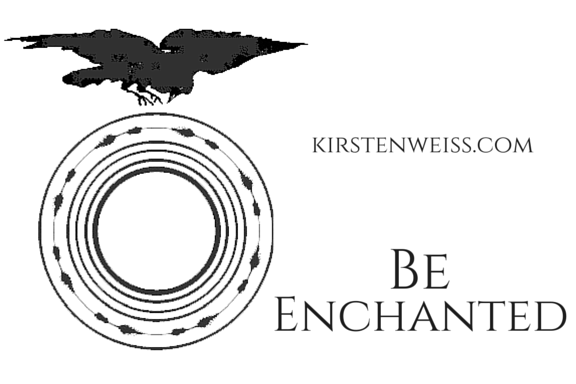Last year, I got the idea that studying poetry – or specifically the process of writing poetry — might make me a better writer. And the more I studied it, the more I started coming across references to writing poetry being a “soul making” activity, an almost mystical practice.
Delving deeper, it seems there are two sides to this poetry/mysticism nexus.
First, because the mystical experience is ineffable, it’s impossible to describe in writing. But if you insist on trying to do it, poetry, with its emphasis on unpacking the moment, symbolism, and the language of the subconscious, can get you closest to the mark.
Second is the idea that the act of writing poetry itself can aid in achieving mystical experiences. The hows and whys of this are a bit murkier.
A mystic believes that by changing himself, he can change his vision and so find God and/or see the unity between all things. The poetic vision is described in similar terms. Ralph Waldo Emerson, for example, said: “Imagination is a very high sort of seeing, which does not come by study, but by the intellect being where and what it sees, by sharing the path, or circuits of things through forms, and so making them translucid to others.”
Imagination as described by Emerson is not today’s definition — fantasy — it is a way of actively observing the world and to begin to see the connections, the unity, between forms. And imagination is not an idle daydream, it is a real place we can go to touch those forms. The poets Coleridge and Blake, who had a tremendous influence on the Victorian mystic/artists, spoke of the process of going to the imagination as of visiting an actual place, and the ideas they found there are not just made up in their heads, they’re discovered. The imagination is described almost a shamanic realm — an upper or lower world.
 Ordinary, day to day consciousness, is lived in the horizontal. Here, reality only truly exists for us if we see it. And while we’re in this space, we can get trapped in negative emotions or boredom or habit, running on our little hamster wheel, not seeing the connectivity and unity of life. But the mystic and the poetic vision is often described as being on the vertical, sinking down into the subconscious or popping up into higher consciousness, and by doing so, experiencing the connectivity of life.
Ordinary, day to day consciousness, is lived in the horizontal. Here, reality only truly exists for us if we see it. And while we’re in this space, we can get trapped in negative emotions or boredom or habit, running on our little hamster wheel, not seeing the connectivity and unity of life. But the mystic and the poetic vision is often described as being on the vertical, sinking down into the subconscious or popping up into higher consciousness, and by doing so, experiencing the connectivity of life.
For both the mystic and the person with poetic vision, the perspective changes, and reality expands. And for both, this usually begins with a deep sense of being present. In order to unpack and write about that moment in time, the poet must pay attention. Oddly, by paying attention to the details of the present moment, the moment expands, giving the opportunity for a sense of unity to rush in.
In short, we need to wake up to our aliveness. When we dream, we usually don’t realize it, we’re just along for the ride, accepting all the odd things that happen in dreamworld. Occasionally (or frequently if you train for it), you can wake up in a dream, become lucid, and realize that you’re the dreamer. The irony is that when we really do wake up, we fall back into those same, oblivious patterns. By taking our world for granted, we forget we’re alive.
Most of the time we’re sleepwalking, and it’s time to wake up. Really wake up.
Want to learn more? Come visit my workshop on Magical Creativity at this month’s Clockwork Alchemy!
About the Author
 Kirsten Weiss is the author of The Hoodoo Detective, book six in the Riga Hayworth series of paranormal mystery novels.
Kirsten Weiss is the author of The Hoodoo Detective, book six in the Riga Hayworth series of paranormal mystery novels.
Other books in the Riga Hayworth series of urban fantasies include: The Metaphysical Detective, The Alchemical Detective, The Shamanic Detective, The Infernal Detective and The Elemental Detective. Kirsten is also the author of Steam and Sensibility and Of Mice and Mechanicals, steampunk novels of magick and suspense.
Find her at http://kirstenweiss.com and @KirstenWeiss


I just love that phrase: “unpacking the moment”. They say that time seems to move faster as we get older because we notice less details in our surroundings. I think this is probably true.
Pingback: An Absolute Beginner’s Guide to Hermeticism | ParaYourNormal
Pingback: William Blake’s Mystic Muse | ParaYourNormal